Weekly Writing Summary For The Week Ending 10/24/2024
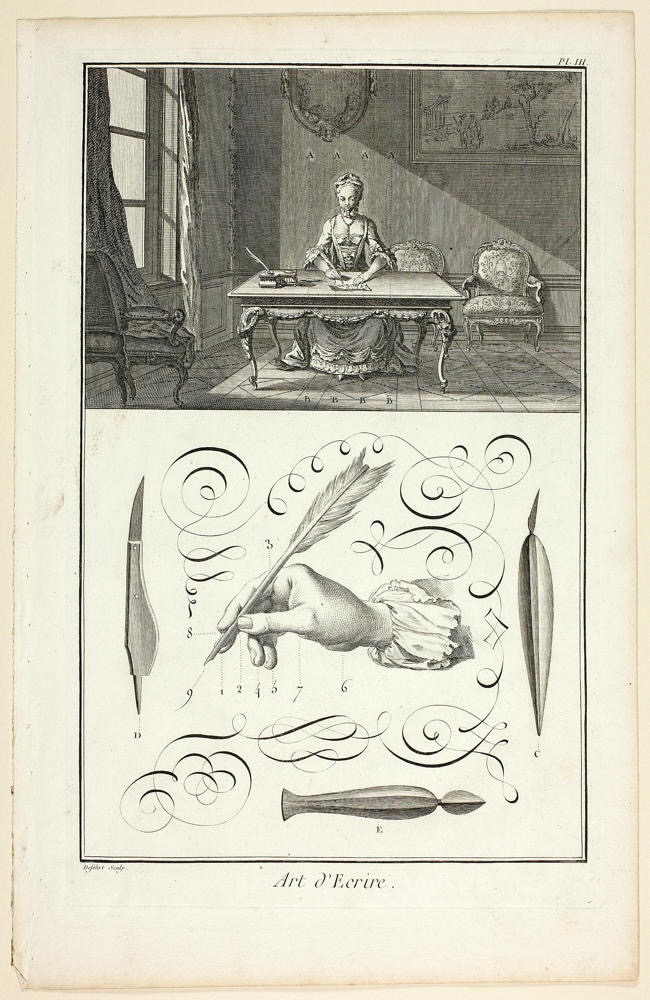
A. J. Defehrt: Art of Writing, from Encyclopédie (1760)
Memorable And Mild
Anticipating the season's first freeze has always signaled a frenetic response from me. Even when we were Exiled, I'd scurry around draining hoses and composting the contents of planters, maybe managing a final garden weeding before the pre-winter freeze settled in. I accomplish an easy dozen long-procrastinated chores that final afternoon. I even bring a few favorites inside, believing they might thrive, though they only sometimes manage to survive. The Muse complains that I bring in more white flies than begonias and geraniums. I have always been a soft-hearted gardener, hesitant to prune, so my garden becomes overgrown. I meticulously compost, though, and that last afternoon before the first freeze typically sees much material added to the composter. I'd bought some fresh composting worms and added them to my newly relined bins earlier in the week. I added the remaining rhubarb and that volunteer tomato that has seeded itself beneath the witch hazel bush with the contents of a half dozen petunia planters on top. When the frost coats the pile, the guts of that bin will be seething with enthusiasm. By Spring, I'll have a couple of cubic yards of the finest worm casings and a few hard husks and cobs of indigestible corn, marking the end of this year’s growing season. May the upcoming winter be memorable and mild!
—
Weekly Writing Summary
This Exiled Story caught me MisRemembering before setting my story straighter. Our first Independence Day in Exile didn't feel very much like freedom. It felt hot, crowded, and terribly scary.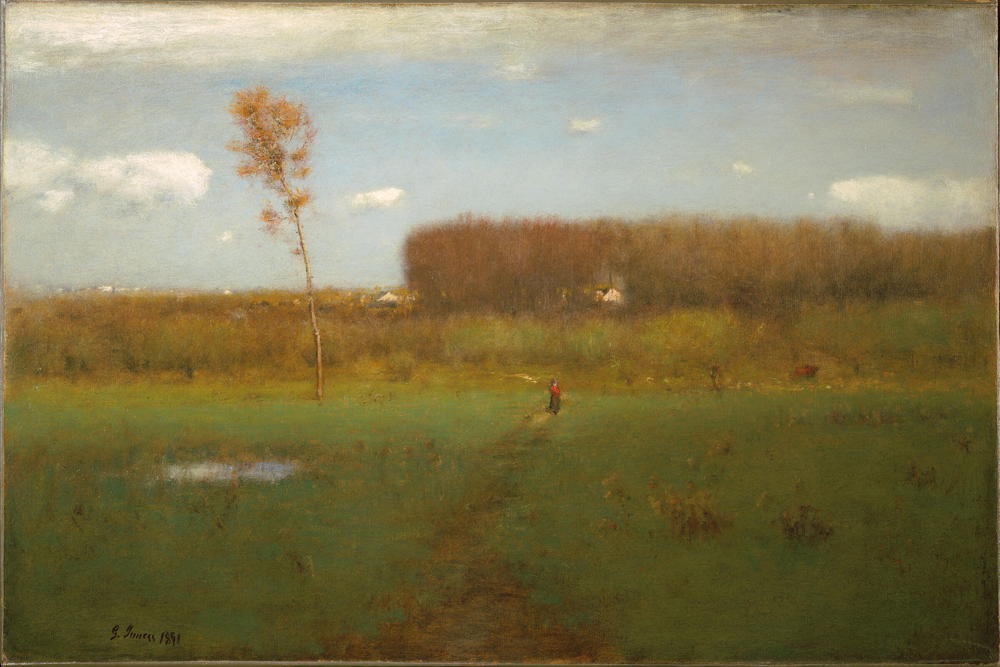
George Inness: October Noon (1891) — Gallery Text: Blurred, softly painted, and almost otherworldly, October Noon differs markedly from the realistic, crisply rendered American landscapes that hang nearby, such as Bierstadt’s magisterial view of the Rockies. Though Inness probably based this scene on the flat, marshy terrain near his New Jersey studio, his image retreats from hard facts and recognizable places to suggest a peaceful, imagined, or dimly remembered landscape. Formally evocative of work from the French Barbizon School, Inness’s quiet paintings found favor among New York patrons overwhelmed by the rumble of the new modern city. As one New York critic put it, “Now and then [Inness] has a picture of perfect peace. . . . It tranquilizes the soul even to look upon it.”
" … a heretic in Rome …"
—
This Exiled Story reported how I felt being a Stranger instead of a visitor once the movers left us in our newly-rented house.
Walter Crane: The strangers entertained (1910)
"Avoiding traffic became my occupation …"
—
This Exile Story found me setting about making EssentialErrors, the means by which every Exile reconstructs their security net. 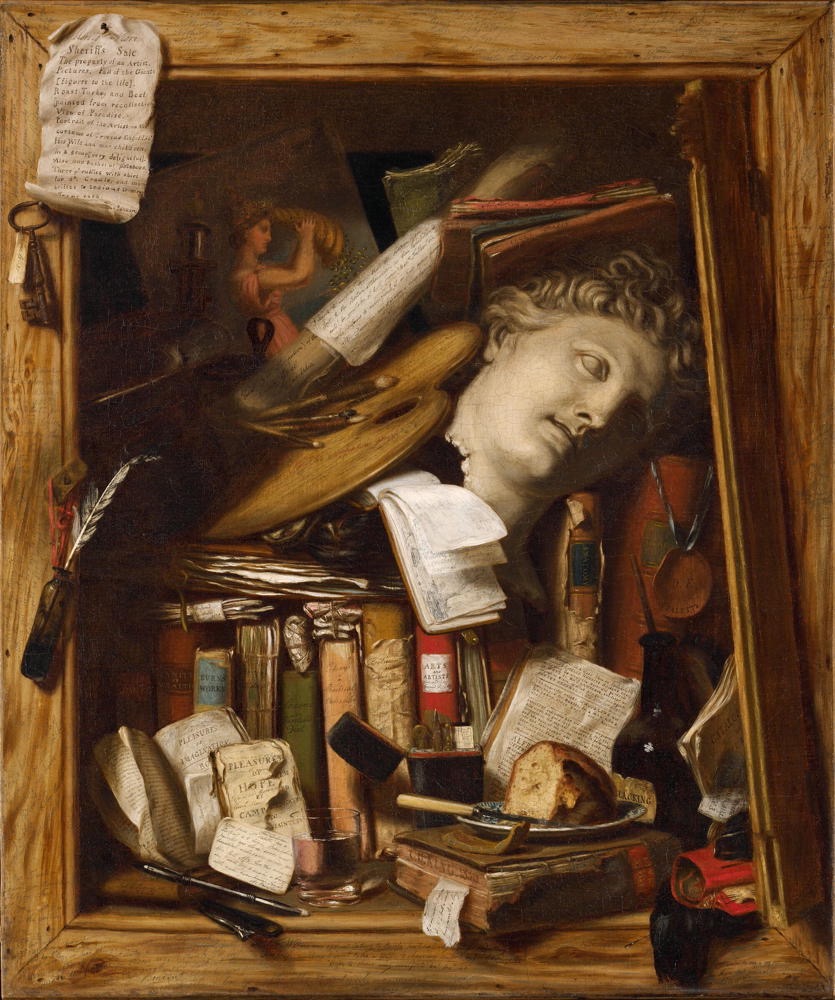
Charles Bird King: The Vanity of the Artist's Dream (1830) - Former Title: The Anatomy of Art Appreciation - Former Title: Poor Artist's Study - Former Title: Still Life, The Vanity of An Artist's Dream Gallery Text:In this humorous still life, King pokes fun at popular taste and laments the plight of the arts in America. A masterful example of trompe l’oeil illusion, the painting depicts a cupboard filled with the possessions of an ambitious and well-educated but financially unsuccessful painter. Brushes, drafting tools, treatises on art, and a cast of the head of the Apollo Belvedere, the celebrated antique sculpture, are crammed in next to stacks of unpaid bills, letters from parsimonious patrons, and a “last prize” medal. Behind the loaf of bread, a fictitious news report complete with typographical errors ridicules the unsophisticated tastes of the era. It makes clear that America was a difficult place for painters like King who wanted to emulate the arts culture of Europe in the new republic: "The exhibition of a Cats Skin in Philadelphia produced TWELVE HUNDRED DOLLARS, totally eclipsing its rival the splendid portrait of [Benjamin] WEST by Sir T. LAWRENCE, the later we regret to state, did not produce enough to PAY ITS EXPENSES. OH’ ATHENS OF AMERICA. I, American (Newport, RI 1785 - 1862 Washington, DC)"
"I was usually successful when staying his hand!"
—
This Exiled Story found me avoiding BigBox store shopping, preferring to trade with proprietors rather than predators.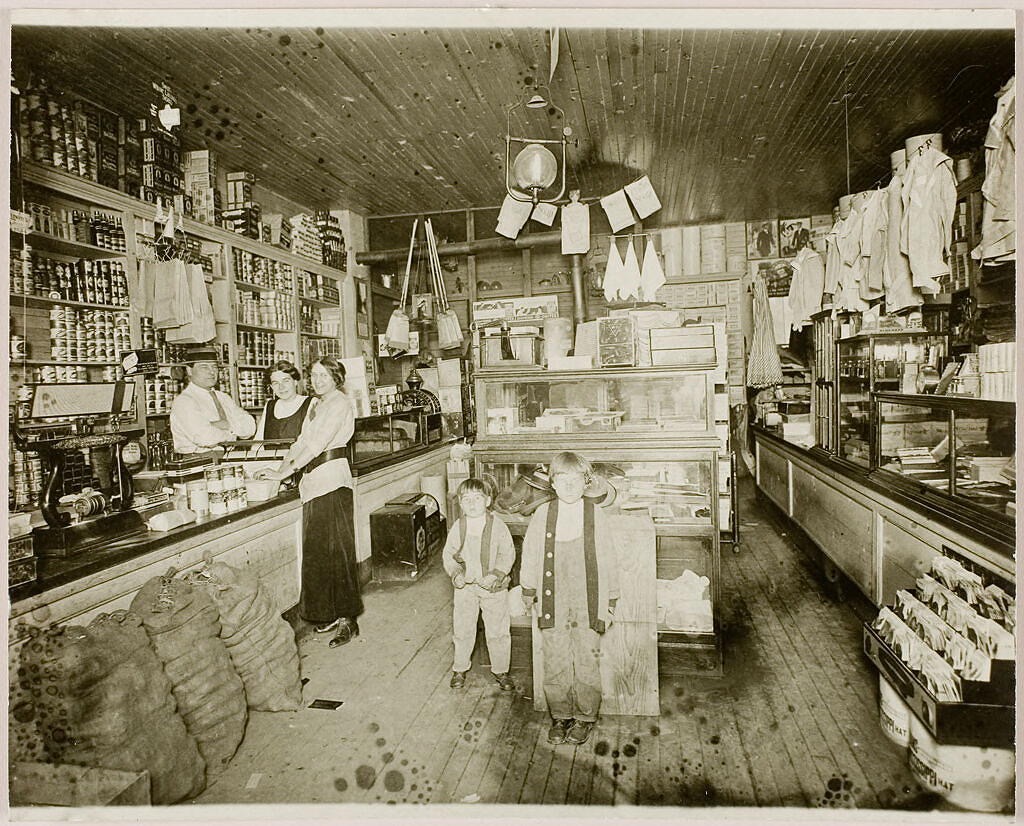
Ken Whitmire Associates: Untitled [interior of a store] (c. 1940, restored 1970s)
"I preferred the neighborhood hardware store over the Home Despot …"
—
This Exiled Story found me without Credentials in the most formal city in the country. My vitae couldn't satisfy anybody. I became a nobody there.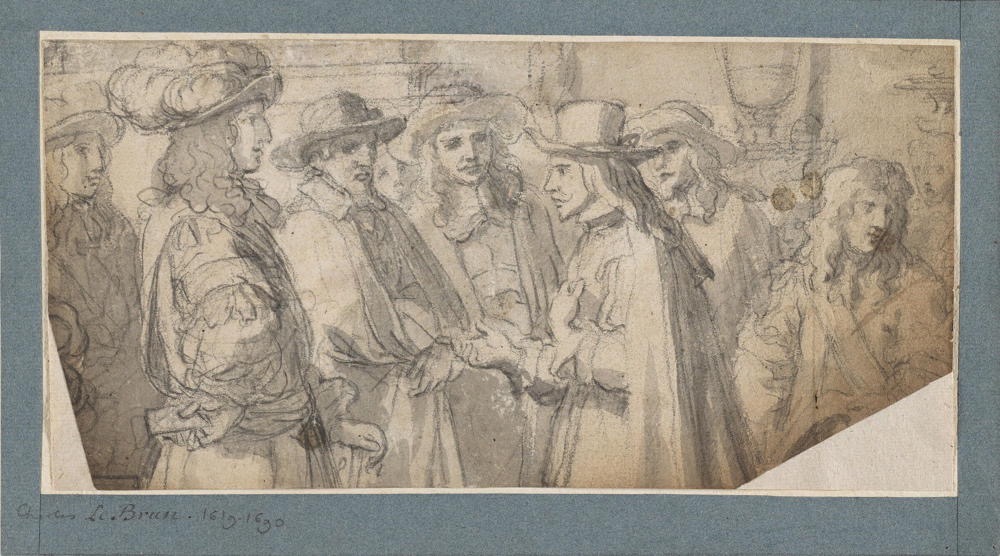
Charles Le Brun: King Louis XIV Receiving Ambassadors from the Court of Spain (c. 1674)
" … just another form of playing the same game …"
—
This Exiled Story found me Walking as a prominent part of my Exiled Lifestyle. We were doubtless healthier after we were Exiled.
Gesina ter Borch: Walking Skeleton (c. 1656)
"Better for me to maintain about the speed of a walking horse …"
—
This series has been working its weird magic on me. I caught myself MisRemembering this week and worried about how I might recover. I chose to feature that flaw, something I gained much practice doing when Exiled. I became a Stranger there, to others and also to myself, for the context frequently misinformed me, if only because I couldn't always comprehend it. I committed a long series of what I now understand to have been EssentialErrors, the basis of trial-and-error learning. I even acquiesced when Exiled and agreed to enter one BigBox store, though I assiduously avoided most others. The Muse received Credentials to live and work in Exile, though I never did. This rendered me a Nobody there, a role with curious power and only self-imposed authority. I ended this writing week recalling how much Walking The Muse and I did while Exiled. Being Exiled probably rendered us healthier than we would have otherwise been. Thank you for following these MisRemembered misadventures and their weird magic!
©2024 by David A. Schmaltz - all rights reserved


